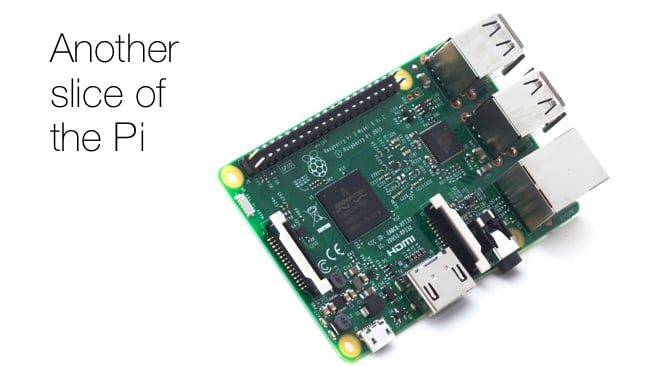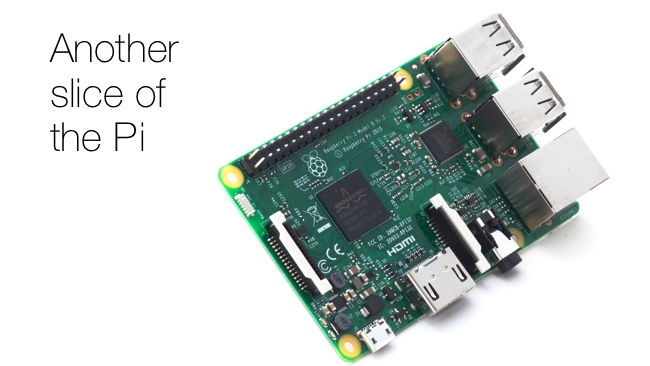
 Raspberry Pi 3
Raspberry Pi 3
The latest iteration of the Raspberry Pi computer board has surfaced, again boasting incredible specs for its paltry price.
We are constantly amazed at the way the things we buy are getting faster and more powerful for the same price.
The current iPhone is now over a hundred times more powerful than the first one from eight years ago. Ten times would have been impressive, but a hundred? And that's with a huge retina screen, too.
It's not just Apple. Samsung's latest offering is mightily impressive and, as an incurable geek, I can't help wishing that I had both.
Raspberry redux
A little further down the scale, the Raspberry Pi is now exactly four years old. Produced in Sony's factory in South Wales, this modest little powerhouse has just seen another iteration, which, like its illustrious forebear, is released on Leap Year Day (29th February).
They've sold eight million units, of which three million were Raspberry Pi 2. According to raspberrypi.org, this makes it the UK's best-selling computer.
It's easy to see why. The whole thing costs less than a new power supply for a laptop computer and it connects to almost anything, if you're prepared to put a bit of work in.
But sheer power has never been what the Pi has been about. Instead, it's about accessibility and affordability. To have any computer that can talk to the outside world for $35/£30 is remarkable, never mind one that can output high definition video though HDMI to a monitor. (I've seen HDMI cables that cost more than that!).
Pi times 10
The new Pi is more of the same. It's arguably ten times faster than the original and 50 to 60% faster than its predecessor, depending on how you measure it.
The chipset itself is a 1.2 GHz 64 it quad-core ARM Cortex A53.
It has integrated 802.11n wireless LAN and Bluetooth 4.1 and retains complete compatibility with projects written for Raspberry Pi 1 and 2.
When one of our favourite sites, Engadget, asked the Raspberry Pi team why the new device doesn't support 4K, they politely said that they wanted to retain video playback compatibility with earlier version.
If we'd been asked that, our response would have been "because it costs $35/£30."
Tags: Technology


Comments